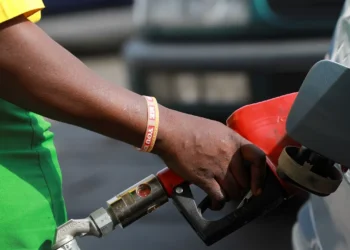In a recent report, the National Bureau of Statistics (NBS) disclosed that food inflation in Nigeria surged to 30.64 percent in September 2023. This significant increase in food prices has further exacerbated inflationary pressures in the country, contributing to a Consumer Price Index (CPI) of 26.72 percent in the same month. The NBS announced these findings on Monday, indicating a 0.92 percentage point increase from the 25.80 percent recorded in August.
The latest data is derived from the NBS’s CPI report for September, which stated, “In September 2023, the headline inflation rate increased to 26.72 percent relative to the August 2023 headline inflation rate, which was 25.80 percent.” On a year-on-year basis, the headline inflation rate was 5.94 percentage points higher compared to the rate recorded in September 2022, which stood at 20.77 percent. This demonstrates a substantial increase in headline inflation rate on a year-on-year basis, as it climbed in September 2023 compared to the same month in the preceding year, September 2022.
Additionally, on a month-on-month basis, the headline inflation rate in September 2023 was reported at 2.10 percent, which was 1.08 percent lower than the rate recorded in August 2023 (3.18 percent).
The main contributors to this surge in inflation were food and non-alcoholic beverages, accounting for 13.84 percent. This was followed by housing, water, electricity, gas, and other fuels (4.47 percent), clothing and footwear (2.04 percent), transport (1.74 percent), furnishings and household equipment and maintenance (1.34 percent), education (1.05 percent), and others. Notably, the rise in food inflation in September was driven by increases in prices of oil and fat, bread and cereals, potatoes, yam and other tubers, fish, fruit, meat, vegetables, and milk, cheese, and eggs.
The NBS data also revealed regional disparities in inflation rates across the country. The cost of living in Nigeria was highest in Kogi (32.95 percent), Rivers (30.63 percent), and Lagos (30.04 percent), while it was lowest in Borno (21.05 percent), Jigawa (22.39 percent), and Benue (23.22 percent).
Food prices were most expensive in Kogi, Rivers, and Lagos. On a year-on-year basis, food inflation was highest in Kogi (39.37 percent), Rivers (35.95 percent), and Lagos (35.66 percent), while Jigawa (23.41 percent), Borno (25.29 percent), and Sokoto (25.38 percent) recorded the slowest rise in food inflation.
Despite headline inflation remaining below 30 percent at the national level, three states, including Kogi, Rivers, and Lagos, were already experiencing record-high inflation rates, which raised concerns about the economic well-being of the residents in these regions.
Commenting on the new spike in inflation rate, Dr. Muda Yusuf, the Director/Chief Executive Officer of the Centre for the Promotion of Private Enterprise, noted that the persistent inflationary pressures in the Nigerian economy could accelerate poverty in the country. He explained that the declining purchasing power of the population over the past few months might have a detrimental effect on economic growth, raising the risk of stagflation as key inflation drivers fail to slow.
Dr. Yusuf highlighted factors contributing to the elevated inflationary pressures, including the depreciating exchange rate, surging transportation costs, logistics challenges, forex market illiquidity, an astronomical hike in diesel costs, climate change, insecurity in farming communities, and structural bottlenecks to production. He emphasized that these challenges primarily stem from supply-side issues.
The continued rise in inflation may also worsen pressure on production costs, weaken profitability, erode shareholders’ value, and dampen investor confidence, according to Dr. Yusuf.
The Nigerian government faces an ongoing challenge in managing these inflationary pressures, with potential implications for the country’s overall economic stability and the well-being of its citizens.











